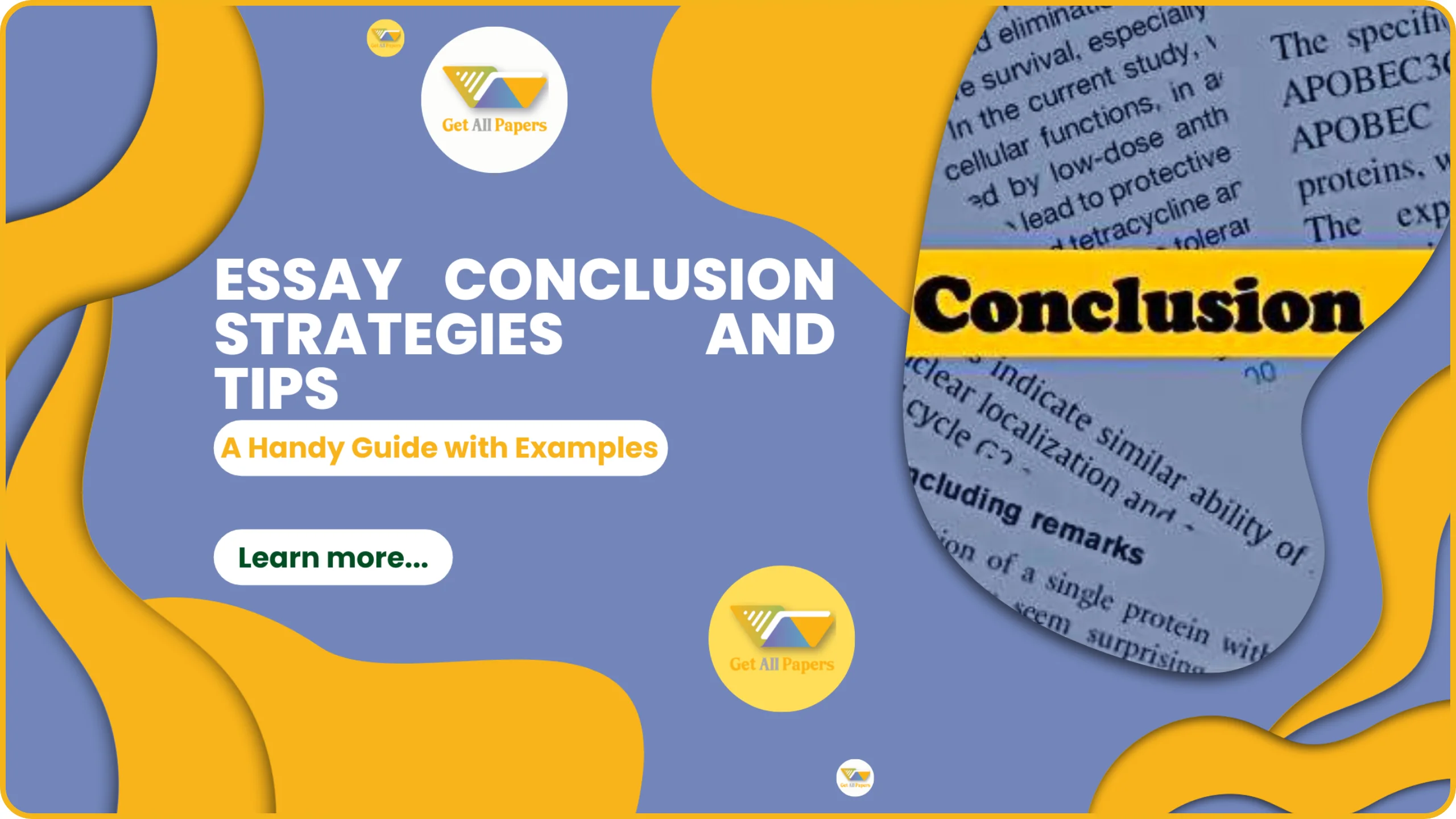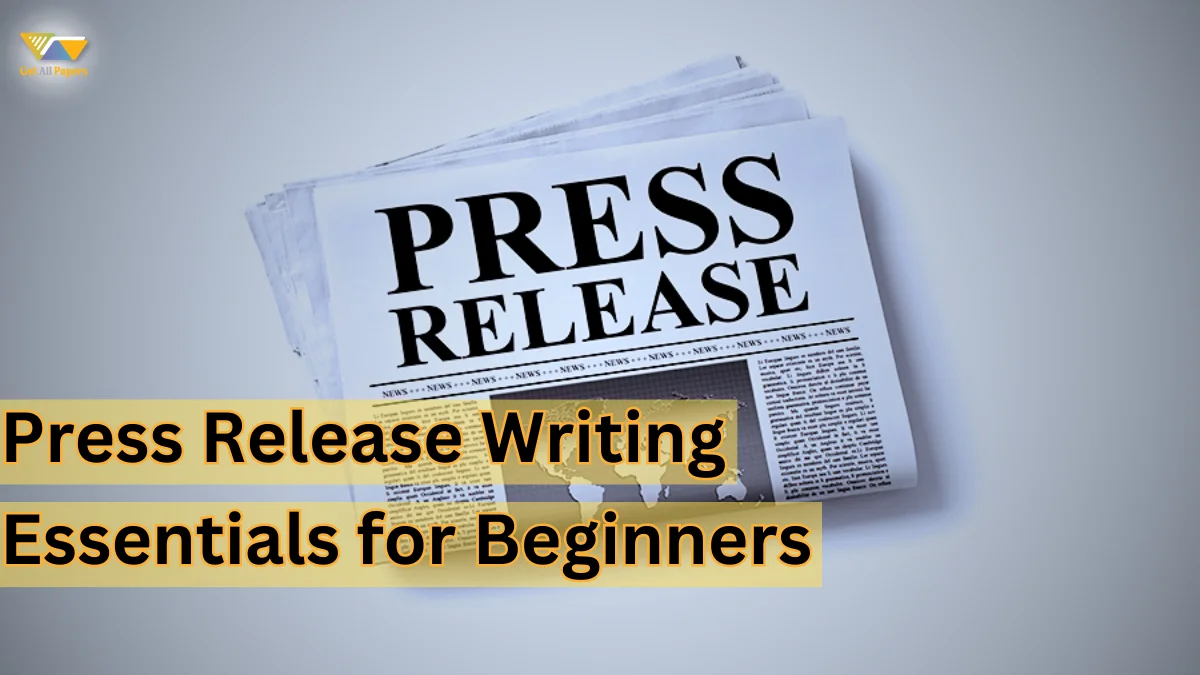
Essay Conclusion Strategies and Tips
Written By: Myra J. Long
Published On: Sep 25th,2023
Introduction
As you reach the final paragraphs of your essay, you're faced with the critical task of crafting a compelling conclusion. The essay conclusion serves as the parting message you leave with your readers, and it's essential to make it strong and memorable. In this article, we will delve into essay conclusion strategies and tips, including examples from argumentative essays, and explore tools like essay conclusion generators. Whether you're an experienced essay writer or just beginning your journey into the world of essay writing, these insights will prove invaluable.
The Crucial Role of an Essay Conclusion
Before diving into strategies and tips, let's understand the role of an essay conclusion. The conclusion of your essay is where you tie together all the threads of your argument or discussion. It's your opportunity to summarize your key points, restate your thesis, and leave a lasting impression on your readers.
A well-crafted conclusion accomplishes the following:
- Summarizes Key Points: It provides a brief recap of the main arguments or points made in your essay, reminding the reader of the core ideas.
- Restating the Thesis: A good conclusion reiterates your thesis statement in a slightly different way, emphasizing its importance and relevance.
- Leaves an Impact: It leaves a strong impression on your readers, making them think or feel something significant.
Now, let's explore some effective strategies and tips for creating a powerful essay conclusion.
1. Echo Your Introduction:
One effective strategy is to echo your introduction in the conclusion. If you started your essay with an anecdote, quote, or a thought-provoking question, consider revisiting that element in your conclusion. This creates a sense of symmetry in your essay, showing that you've come full circle and reinforced your initial ideas.
Example: In an essay about the impact of climate change, if you began with a shocking statistic, you could end by reiterating that statistic and its implications, driving home the urgency of the issue.
2. Summarize Your Main Points:
A straightforward yet essential tip is to summarize your main points concisely. Avoid introducing new information or arguments in the conclusion. Instead, focus on highlighting the most critical aspects of your essay, reinforcing your argument's strength.
Example: In an essay discussing the benefits of renewable energy sources, the conclusion could summarize the advantages of solar and wind power while emphasizing their environmental benefits and long-term sustainability.
3. Address Counterarguments:
If you're writing an argumentative essay, acknowledging and addressing counterarguments in your conclusion can strengthen your overall argument. This demonstrates that you've considered alternative viewpoints and can make your own argument more persuasive.
Example: In an argumentative essay advocating for stricter gun control, you might briefly mention opposing views and then refute them, reaffirming your stance on the issue.
4. Emphasize the Significance:
Explain the broader significance of your essay topic. How does it relate to the real world or broader concepts? Help your readers understand why your essay matters beyond the confines of your paper.
Example: In an essay on the impact of social media on society, you could emphasize the importance of responsible social media usage in shaping our collective future.
5. Offer a Call to Action or Thought-Provoking Insight:
Challenge your readers to take action or consider new perspectives. Pose a thought-provoking question or suggest practical steps that can be taken to address the issue you've discussed.
Example: In an essay about the importance of volunteering, you might conclude by encouraging readers to find a local volunteer opportunity or contemplate the personal growth that volunteering can bring.
Using Essay Conclusion Generators
While these strategies and tips can help you craft a compelling conclusion, there are also tools available, like essay conclusion generators that can assist you in the process. These tools use algorithms to generate conclusions based on the content of your essay.
Essay conclusion generators can be especially useful when you're struggling to find the right words to wrap up your essay. They can provide you with a starting point or inspiration for your conclusion. However, it's essential to use them judiciously and not rely solely on automated tools. Always review and refine the generated conclusion to ensure it aligns with your essay's context and purpose.
Conclusion
Additionally, essay conclusion generators can be helpful tools to jumpstart your conclusion-writing process, but they should be used in conjunction with your own insights and refinements. Remember that a well-crafted essay conclusion not only wraps up your paper but also leaves your readers with something to ponder or act upon. So, the next time you approach an essay, apply these strategies and tips to create a conclusion that truly resonates with your audience and showcases your writing prowess. Whether you're using a free essay writer or tackling the task yourself, a strong conclusion is the key to a memorable essay.
Related Posts
Popular Article






